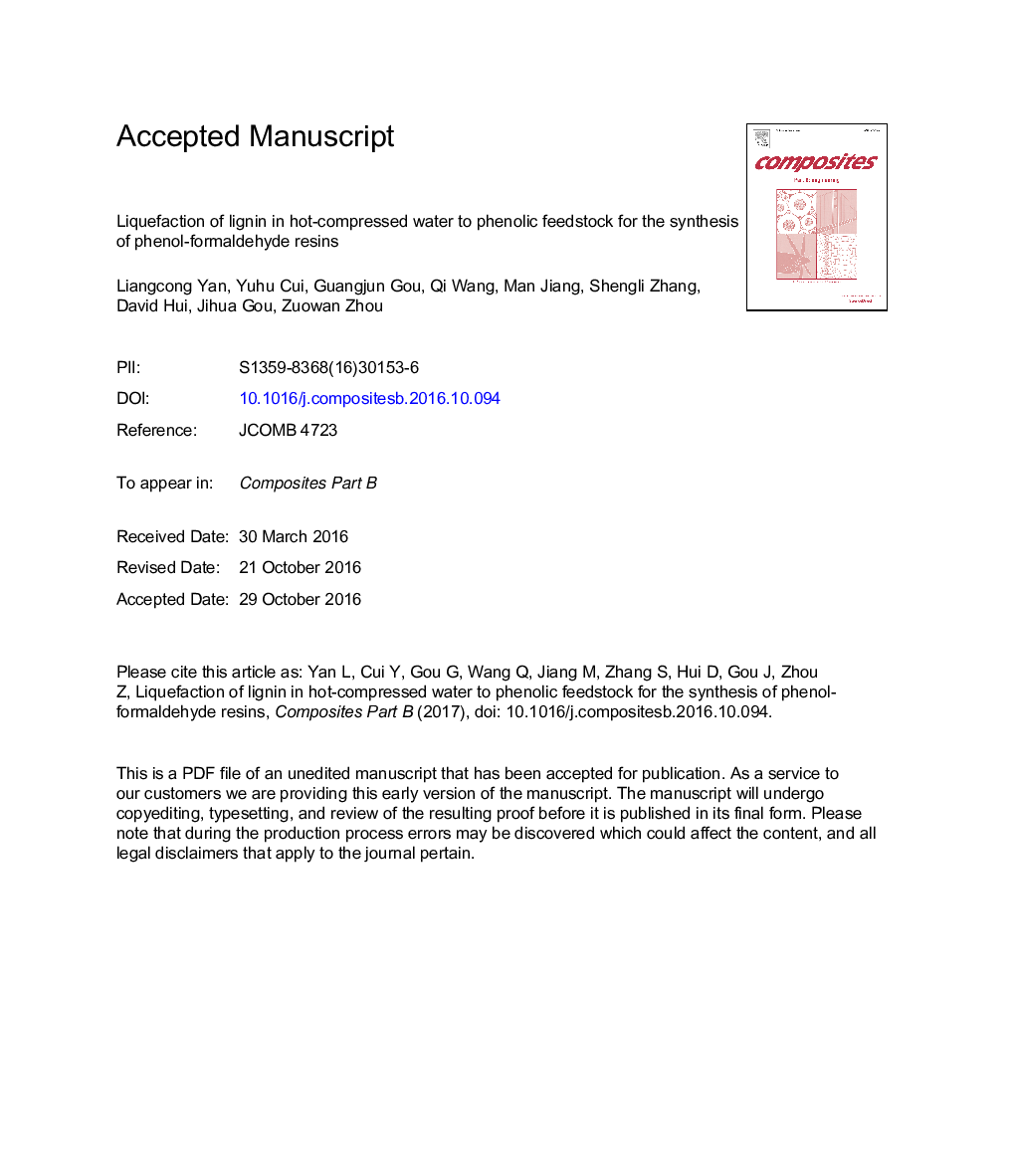| Article ID | Journal | Published Year | Pages | File Type |
|---|---|---|---|---|
| 5021420 | Composites Part B: Engineering | 2017 | 27 Pages |
Abstract
The corn stalk lignin was liquefied in hot-compressed water without any other additives to obtain the degraded liquids (DL) with liquefaction yields of 45.9-61.4 wt%, under 3.4 MPa and 260 °C. The degradation liquids, mainly composed of small molecular phenols as high as 84.6 wt%, were put to use as substitutes for phenol to modify phenol-formaldehyde resin. The degradation liquids modified phenol-formaldehyde resins (DLPFs) possessed the highest adhesive strength (1.32 ± 0.10 MPa) than the lignin-phenol-formaldehyde resin (LPF, 0.72 ± 0.20 MPa) and typical phenol-formaldehyde resin (PF, 0.77 ± 0.26 MPa). The free formaldehyde contents of the DLPFs were all lower than the requirement of the corresponding standard (â¤0.3 wt%), even when 60% of phenol was replaced by DL (0.232 wt%). The curing behavior analysis showed that the introducing of DL notably decreased the curing activation energy. The results demonstrated that the DLs were very suitable substitution for phenol in preparation of DLPFs. The adhesive strengths of DLPFs were considerably improved compared with typical PF. The thermal curing kinetic analysis revealed that the values of activation energy were decreased obviously with the introduction of DL.
Related Topics
Physical Sciences and Engineering
Engineering
Engineering (General)
Authors
Liangcong Yan, Yuhu Cui, Guangjun Gou, Qi Wang, Man Jiang, Shengli Zhang, David Hui, Jihua Gou, Zuowan Zhou,
